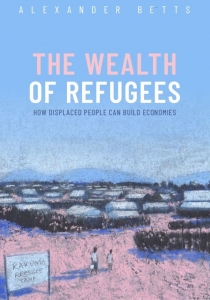alt=""
Credit: R. Bradenbrink
East Africa
Explaining variation in the right to work for refugees.
Why do some countries give refugees the right to work and other socio-economic rights? One of the most important yet neglected research questions is to explain why some countries give refugees basic socio-economic freedoms while others do not. In East Africa, there is particular variation: Uganda offers the right to work, Kenya does not, and Ethiopia has recently gradually shifted from highly restrictive to be increasingly more liberal. But what is the national and local politics that underlies this? And what does it tell us about how international donors and humanitarian organisations can persuade host countries to socio-economically integrate refugees?
During 2018-19, Alexander Betts received a British Academy mid-career fellowship to explore the political economy of refugee self-reliance. Focusing on Uganda, Kenya, and Ethiopia, the research has used a combination of archival research and fieldwork to explore the question ‘why do some states give refugees the right to work, and other related socioeconomic rights, while others do not?’.
The research explores three case studies in depth. First, a political history of Uganda’s self-reliance model. Second, the politics beyond the development of Ethiopia’s 2019 Refugee Proclamation, which ostensibly gives refugees the right to work and freedom of movement. Third, the politics behind Turkana County in Kenya’s development of the Kalobeyei Integrated Social and Economic Development Plan (KISEDP). Out of the research emerges an understanding of the ‘bargains’ that are needed between the international, national, and local levels to enable refugees to have access to socio-economic rights. The research is published in Alexander Betts’ book The Wealth of Refugees: How Displaced People Can Build Economies (Oxford University Press).

